Last week, while Shelli was covering Sundance in Park City and I was watching from home, the Oscar nominations were announced. Maybe you were happy with the decisions, maybe you weren’t, but one thing is certain — this announcement was the result of over a year of campaigning and buzz.
Film festivals are one of the primary places that buzz begins. It’s why it’s so important that the first responses to films out of festivals aren’t solely those of cis straight white men working for major publications. The initial responses to films can decide which films get sold, what kind of releases they’re given, and what kind of attention they — and the people involved in their production — garner over the next few years.
I hope you’ve enjoyed the work Shelli and I have highlighted with full reviews the past week. But we both saw so much more — including lots of straight films we still have opinions about! That’s why for every festival we also do capsule reviews for everything. Of course, our voices matter when it comes to on-screen dyke drama, but they also matter for the film world at large. That’s how real change can occur.
Click the links below to jump directly to each review, or scroll down to peruse all of them!
Drew’s Capsule Reviews
Sometimes I Think About Dying
Kim’s Video
Gush
Little Richard: I Am Everything
Fancy Dance
Cassandro
Animalia
Theater Camp
The Persian Version
Going to Mars: The Nikki Giovanni Project
Mamacruz
The Disappearance of Shere Hite
Heroic
Bad Behaviour
Shortcomings
Kokomo City
The Stroll
Shelli’s Capsule Reviews
Mutt
The Doom Generation
Little Richard: I Am Everything
Drift
The Pod Generation
My Animal
Aliens Abducted My Parents and Now I Feel Kinda Left Out
Young. Wild. Free.
You Hurt My Feelings
The Stroll
Theater Camp
Scrapper
Drew Burnett Gregory
Sometimes I Think About Dying (dir. Rachel Lambert)
As someone who wrote an introduction to Chantal Akerman on this very website, I’m obviously a fan of movies about lonely and depressed women that capture their protagonist’s headspace by being pointedly boring. Unfortunately, this approach needs to be done well to actually work. The movie tries too hard to make Daisy Ridley’s Fran a boring regular person that it ends up feeling like the filmmakers have never actually met anyone normal. Her depression doesn’t resonate, her relationships feel even thinner than they’re supposed to, and the whole thing ends up feeling unspecific and dull.
Kim’s Video (dir. David Redmon, Ashley Sabin)
While this documentary mostly consists of filmmaker David Redmon showing off his basic film knowledge, musing on his purpose in the universe, and harassing random Italians, this story about a famous video store and its enigmatic owner does have its charms. Redmon’s entitlement and audacity may grate but his persistence does result in a rediscovery of the film collection, run-ins with the mafia, and a full-on heist. I just wish Redmon and co-director Ashley Sabin had been more successful in capturing any one of the multiple threads of the story. The documentary doesn’t work as a tribute to film. It doesn’t work as a portrait of store owner Yongman Kim. And it doesn’t work as a comedy thriller. But it comes close enough that I hope Steven Soderbergh or the oft-mentioned Coen Brothers see the potential on display and turn this into a narrative.
Gush (dir. Fox Maxy)

Movies are not puzzles waiting to be solved. This is true for mainstream experimental narrative work and it’s true for experimental experimental work like Fox Maxy’s debut feature. There is so much going on in this film — on a thematic level and in Maxy’s playful form. To appreciate it doesn’t mean understanding every moment. It just means engaging with it, thinking about it, discussing it, and, before all that, letting it wash over you as an experience. For me, the moment that stood out was when in one of their video diary segments, Maxy says, “It’s hard being a celebrity.” It made me reflect on the interview between Tyra Banks and Naomi Campbell they keep cutting back to — about the pressures of celebrity, the pressures when regular people carry the weight of celebrity without the resources. The burden people have to package our traumas, our joys. The community and pleasure that can sit alongside that burden. Maxy blurs the lines between cinema and online spaces in a way that at times is a lot of fun and other times feels like the stuff of nightmares. These are just some of my initial thoughts. What’s great about a film like Gush is how different each of our experiences might be, how a moment, an image, may return to me in days to come and make me think of the work in a totally new way.
Little Richard: I Am Everything (dir. Lisa Cortés)
Coming soon to HBO Max, this portrait of Little Richard finds ways to go beyond the genre conventions of the life-spanning biographical music doc. While it certainly succeeds in providing an overview of Little Richard’s life, features lots of great performance and interview footage, and outlines his great importance to music and culture, it’s at its best when it’s doing more. I love the choice to have contemporary Black artists perform moments in his life that weren’t filmed. Not only is it dynamic to watch, but it shows Little Richard’s far-reaching influence beyond the white artists that appropriated his style. As stated in the title, the film lives in Little Richard’s vastness, in his contradictions, and with that it encompasses so much necessary context. He may have originated rock n’roll, but the film does an excellent job showing the lineage that came before him — musically and culturally. Ultimately, this is a fitting tribute to a complicated Black queer icon who deserved more in his life and deserves more in his death.
Fancy Dance (dir. Erica Tremblay)
Since first seeing Lily Gladstone in Kelly Reichardt’s Certain Women, I have been waiting for her to get the parts she deserves. Finally that time has come. Later this year she’ll star in Scorsese’s Killers of the Flower Moon and at Sundance she’s the lead of Reservation Dogs writer/director Erica Tremblay’s debut feature. Here she plays Jax, a queer woman taking care of her niece and searching for her missing sister on the Seneca-Cayuga Reservation. I wish the film hadn’t felt the need to continuously raise its already high stakes and had trusted the central relationship between Jax and her niece. Gladstone is so good and the film works best when it focuses on her interior life and the family dynamics rather than the sometimes forced genre conventions. We need more films about queer Indigenous people, more films that address the continued impact of colonialism, more films that portray how Indigenous children are taken away from their homes and communities, more films that give voice to the epidemic of Murdered and Missing Indigenous Women. Despite its flaws, this is a worthwhile watch for those reasons and for the lead performance. Hopefully, even more Indigenous artists get the chance to tell these stories. And hopefully Lily Gladstone becomes a major star.
Cassandro (dir. Roger Ross Williams)
I know so little about lucha libre that if my friend Daniel hadn’t talked to me about it beforehand I wouldn’t have known this was based on a true story. So keep in mind that’s my context here. But I really, really liked this movie. It doesn’t feel the need to over-dramatize the story or fit into too many sports movie clichés. It trusts that the story itself and the emotional beats of life will be enough. And it trusts its central performances from three of the most attractive actors alive — Gael García Bernal as Saúl/Cassandro, Raúl Castillo as his secret lover, and Roberta Colindrez as his trainer. A tribute to the strength of faggotry, this story of embracing your full queer self is a crowd-pleasing triumph.
Animalia (dir. Sofia Alaoui)
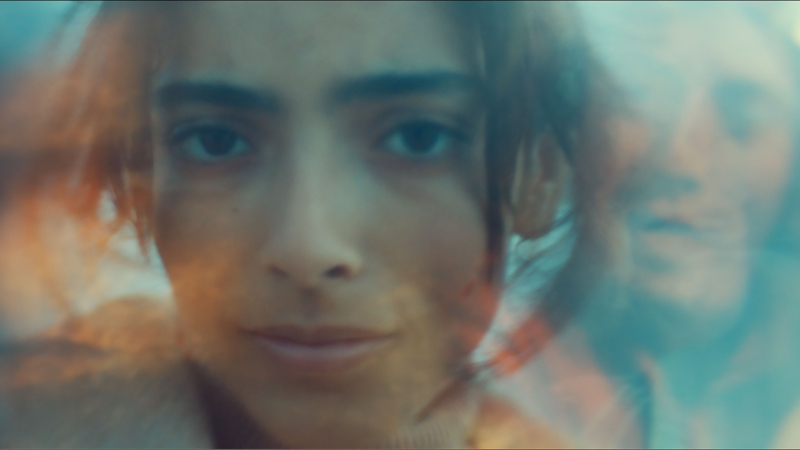
One of the best surprises of the festival, this Moroccan movie about a pregnant woman trying to reunite with her wealthy husband amidst an alien invasion is equally visceral and thematically dense. With a strong central performance from Oumaïma Barid and remarkable cinematography, the experience of watching the film is arresting enough that its elusiveness becomes an asset rather than a hindrance. The protagonist doesn’t know what’s going on through most of the film and neither do we as it continues to reinvent itself moment by moment. In the end, its many threads unite and it reveals itself to be a film that not only has sharp class critiques but even more complex questions about what it means to be human in a world that ignores so much humanity.
Theater Camp (dir. Molly Gordon, Nick Lieberman)
It’s impossible to watch a mockumentary about over-the-top theatre people and not think about Christopher Guest’s iconic Waiting for Guffman. But while that film leaves you in misery — for better or worse — this film leaves you with something like hope. It’s not that the humor is less biting and less satirical. (I promise if you’ve ever felt traumatized by a theatre teacher there will be plenty to recognize.) It’s just that the ultimate conclusion is something more akin to a tribute to the theatrical settings where youthful misfits have long found homes. With a perfect cast of adults and an equally charming cast of talented kids, Theater Camp is a nostalgic crowd-pleaser done right. It also has a magnificent musical finale
The Persian Version (dir. Maryam Keshavarz)
I’m a big fan of Circumstance and was really excited for this dramedy from Maryam Keshavarz based on her own life. I admire its ambitions and for the most part don’t mind its wild tonal shifts. It stays interesting and entertaining and feels like a loving tribute to a complicated mother-daughter relationship. The only thing about the film that really didn’t work for me was the central romance. Not because it’s with a cis man! It just feels either underdeveloped or overdeveloped. As is he feels like a one-note joke which is frustrating when there was a chance to get deeper into the main character’s shifting queerness — especially since that’s what initially caused the split with her mom. It’s fine to have a cis straight man dressed in drag. I’m just not sure that it was the most interesting choice for this particular story.
Going to Mars: The Nikki Giovanni Project (dir. Michèle Stephenson, Joe Brewster)
A critique I often see leveled at biography docs is they don’t dig deep enough. Maybe they provide a cursory introduction for people who aren’t familiar with the subject and their impact but they don’t reveal anything new. Sometimes this is true — sometimes, I think, we want to know too much about the people we admire. What makes this portrait of Nikki Giovanni so special is it makes her contradictions, her elusiveness, her boundaries, part of the film itself. It does provide an introduction to the poet — showing how she was and is radical, was and is important — but it also just spends time with the person herself. I love how much we learn and I love much we don’t.
Mamacruz (dir. Patricia Ortega)
While the poster of an older woman kissing a Jesus sculpture suggests an edgy work of blasphemy, Patricia Ortega is far more interested in creating a sweet and sentimental portrait of self-discovery. Kiti Mánver stars as Cruz, a woman with a disinterested husband, a daughter following her dancing dreams in Vienna, and a pre-teen granddaughter left in her care. Like her own mother, Cruz is a seamstress and she uses her talents to make garments for the church sculptures. After stumbling upon porn by accident, her sexual desire is unlocked. My favorite moments of the film are when she’s spending time with other women at her sex therapy group. They feel equally funny and meaningful. I do wish we got to learn a bit more about Cruz’s mother and what led Cruz to take such a different path from her. There’s some really great mother/daughter, intergenerational threads that almost work and I wish they landed just a bit better. But, as is, this is still a well-acted and heartwarming tale of sexual awakening.
The Disappearance of Shere Hite (dir. Nicole Newnham)
There was a lot I didn’t know about Little Richard, the Indigo Girls, and Nikki Giovanni that I learned from the docs at this festival. But I have a confession — I didn’t even know the name Shere Hite before this film. As someone interested in gender and sexuality and feminism — and James Bond — this seems wild to me! But the film is titled as it is for a reason. Shere Hite was cast off in the late 80s and early 90s along with feminism, exiled to Europe until her death. I loved learning about her in this dreamy portrait that matches her combination of intelligence, beauty, and mystery. It’s a fairly straight forward biography doc but told with a real artistry. Second wave feminism is often — fairly — dismissed for its conservatism and I loved learning about this bisexual pro-sex, pro-sex work icon who was right in the middle of it. The world never changed as much as Hite wanted it to, but it did change and it will keep changing no matter how many battles we lose.
Heroic (dir. David Zonana)
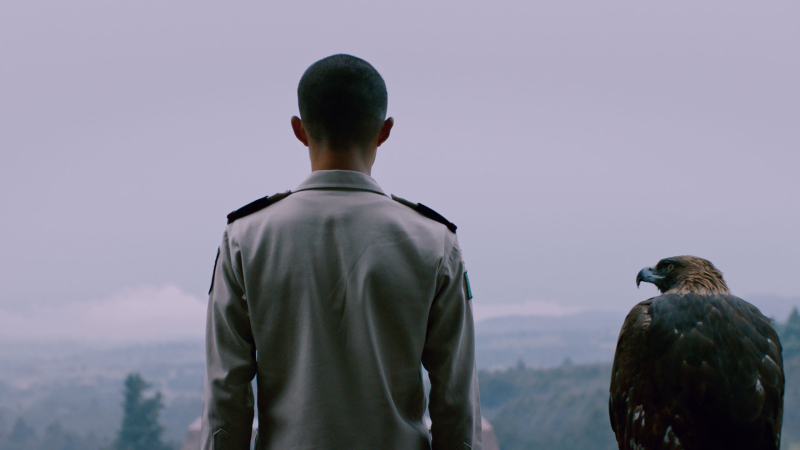
François Truffaut once said, “Every film about war ends up being pro-war.” Steven Spielberg once said, “Every war movie, good or bad, is an anti-war movie.” While both of these pithy statements are obviously reductive, film history shows Truffaut to be far more correct. There are exceptions — The Battle of Algiers being a very notable one for me personally — but for the most part even movies that aim to show the brutality of war and the military end up glorifying it. David Zonana’s remarkable film Heroic succeeds where those have failed. While it is not a war movie, it is a military movie, and it excels in ways that similar films from Full Metal Jacket to last year’s The Inspection did not. With beautiful, dreamy cinematography and a memorable performance from first time actor Santiago Sandoval Carbajal, Zonana creates a harsh portrait of masculinity and nationalism. The critique goes beyond the bootcamp conditions and the desperation of its lower class, Indigenous protagonist. The film is clear that the goal is turning boys into heartless killing machines for the good of the state — and the most powerful in the state. I have never seen an American military film with this level of political clarity and few with its artistic merit.
Bad Behaviour (dir. Alice Englert)
There are a lot of interesting ideas in this disjointed debut from actor Alice Englert — I just wish they came together with more cohesion and worked more scene by scene. Jennifer Connelly and Ben Whishaw are having a lot of fun but Englert — who I usually like — isn’t a good enough actor to sell her writing. (And the less said about Dasha Nekrasova the better.) Movies don’t need a conventional structure — shown many times in the work of Englert’s mom Jane Campion! — but this film felt unstructured without purpose. The dialogue is neither grounded nor stylized and none of the film’s multiple plots feel complete. That said, I love that Shelli loved this and reviewed it for the site! This is exactly why it’s so great to have two critics at the same festival. Go read her review for a different take!
Shortcomings (dir. Randall Park)
Randall Park’s directorial debut has a pointedly unlikable character. Ben is negative and pretentious and directionless and hypocritical. At times he’s even cruel. What works well about this anti-romcom is he’s all these things in a way that feels real. Justin H. Min is insufferable in a way that’s fun to watch — especially in the scenes with his best friend, a heartbreaking lesbian played by Sherry Cola. Where the film is less successful is in the writing of Ben’s longtime girlfriend, Miko, played by Ally Maki. It’s one thing when a minor character like the one played by Tavi Gevinson is comically, irredeemably annoying, but with Miko it ends up being a hindrance to Ben’s journey and the film as a whole. If she was a more realistic and grounded person it would emphasize Ben’s miserable nature. Instead his inexcusable actions end up feeling justified. Well, almost justified. I’m still on her side even if she’s poorly written.
Kokomo City (dir. D. Smith)
The first of two documentaries at Sundance focusing on Black trans sex workers and directed or co-directed by a Black trans woman, Kokomo City has the urgency of the present. The four main subjects may be sharing their stories from years past but D. Smith keeps an energy to the editing that creates a feeling of immediacy. It’s a smart choice given who the audience seems to primarily be — Black cis men who desire these women in secret and Black cis women who chose not to know. Smith and the featured women tell these stories with humor while making sure to emphasize the seriousness of their lives. They deserve to work without fear of arrest and murder. They deserve to not work and have other opportunities if they want. They deserve to be fucked for love, not money or for love and money, whichever they prefer. I hope we see more films from D. Smith soon because this is an assured and confident debut.
The Stroll (dir. Kristen Parker Lovell, Zackary Drucker)
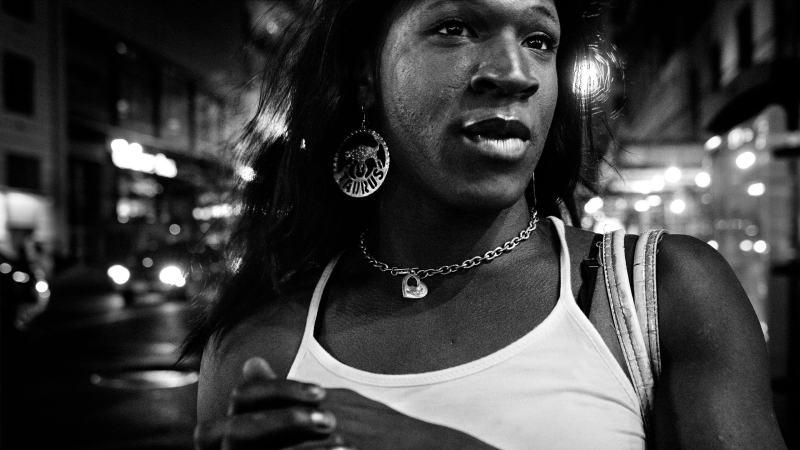
Where Kokomo City aims to capture the present, The Stroll aims to reclaim the past. Director Kristen Parker Lovell begins the film reflecting on her involvement as a subject in a doc about trans sex workers made by a cis person in 2008. Now she’s here to tell her own story — and the story of so many trans sex workers who worked in the Meatpacking District. The film is at its best when Lovell is sharing her memories and reminiscing with old friends. But, for those who don’t know it, I’m glad the wider history is also laid out so well. It’s told in a way that’s all-encompassing while still feeling personal. I hope people who need it are reminded that we must decriminalize sex work, defund the police, close Rikers, abolish prisons, and hold hate in our hearts for Rudy Giuliani and Mike Bloomberg. This is a celebration of those who survived and a tribute to those who did not.
Full Reviews on Autostraddle
L’immensità (dir. Emanuele Crialese)
Mutt (dir. Vuk Lungulov-Klotz)
It’s Only Life After All (dir. Alexandria Bombach)
Slow (dir. Marija Kavtaradzė)
The Night Logan Woke Up (dir. Xavier Dolan)
Shelli Nicole
Mutt (dir. Vuk Lungulov-Klotz)
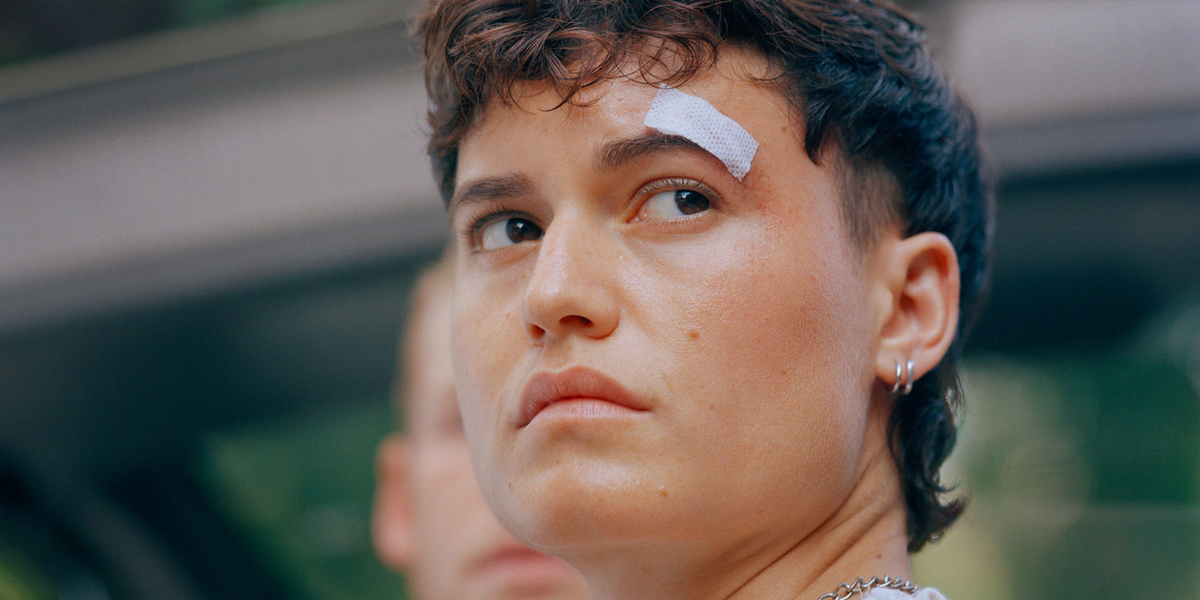
Have you ever read the book Alexander and The Terrible Horrible No Good Very Bad Day when you were a kid? Maybe Feña did ‘cos he is very much having a long-ass day, filled with a bunch of surprises that aren’t necessarily good. He’s very much just trying to live his life — even if it is messy — and multiple people are putting their shit onto him in like a 24-hour period, but he’s no saint either. My favorite thing about this film is the performance from Lio Mehiel, who portrays Feña beautifully. The movie feels like a chaotic day in the life of someone who is continuing to learn the layers of who he is and how others view him, both within and outside of his transness.
The Doom Generation (dir. Gregg Araki)
I’d never seen this movie, but as a lover of niche-ass 90s movies, it sat on my watchlist forever. It’s been there so long because it’s not available to stream and a physical copy is expensive as fuck — there are some that are cheap but I’ve heard stories of people getting ripped off. So when I heard it was playing at Sundance, A RESTORED VERSION ALONG WITH A Q&A WITH THE DIRECTOR, I was amped. This is a movie I feel can only have been made in the era it was. It’s the story of a surprise road trip gone awry and the ending kinda fucked me up in a not-so-good way but yeah — it is certainly a movie that was made.
Little Richard: I Am Everything (dir. Lisa Cortés)
Yes, he is a queer icon but gotdamn I didn’t know all this about Little Richard! Born in Macon, Georgia he is the actual godfather of Rock n’ Roll. I knew him as such, possibly because of the family I grew up in, but I was unaware of his past. He was a reverend, had money issues, battled with drugs, and took a very public stance on his own queerness which included openly putting himself back in the closet. I learned the story of a man who wanted his just due and made damn sure that he was going to get it.
Drift (dir. Anthony Chen)
Heavy and very traumatic kinda from start to finish. Jacqueline has fled Liberia and is now in Greece. She has no money and nowhere to go, all she has are her memories. The story is told half in the present where she is trying to survive on the island (where her British accent comes in hand), and half in the past where we see her life in London (where it seems she had a girlfriend?) and in Liberia with her family. Graphic visuals of Black death and assault were not the only thing to take me away from the film, it was very slow and a few of the flashes of her past felt misplaced in the story. It seems too focused on the trauma of the past, instead of telling the story of a woman who is trying to move forward.
The Pod Generation (dir. Sophie Barthes)
The message sent to many girls as we grow up is to do it and want it all — career, fun, friends, love, and children. When the time comes, we’re given such a short period of time to make the decision to participate in all or some of them, especially having children. But what if you didn’t have to pause your life to have them? In The Pod Generation, starring Emilia Clarke and Chiwetel Ejiofor, they live in an AI-filled future where the entire process of having a child — from conception to delivery — can happen inside a pod at a pastel-hued office. An odd and playful film (with a dash of dejection) that shows how easy it could become to outsource humanity.
My Animal (dir. Jacqueline Castel)
Okay so yes, this was a fun steamy little vibe. They are def doing the whole hormonal monsters that live inside teen girls thing in the exact way I was expecting them to, but just with a little more visual pizzazz. It’s nice to know that even lesbians who are mythical creatures also have dyke drama! Also, when oh when will Amandla Stenberg choose a role where their queer love interest is Black?
Aliens Abducted My Parents and Now I Feel Kinda Left Out (dir. Jake Van Wagoner)
This was the purest thing I saw at Sundance. It was at the top of my watchlist and I ended up seeing it at a screening that was full of kids and it basically doubled the experience. A film where an adorable kid thinks his parents were abducted by aliens and he has been on a search to find them for ten years. It’s a love story — romantic, self, and familial — and Will Forte is in it so, duh, you know it’s going to be good. Also, the writer is kind and silly and that matters a lot to me.
Young. Wild. Free. (dir. Thembi Banks)
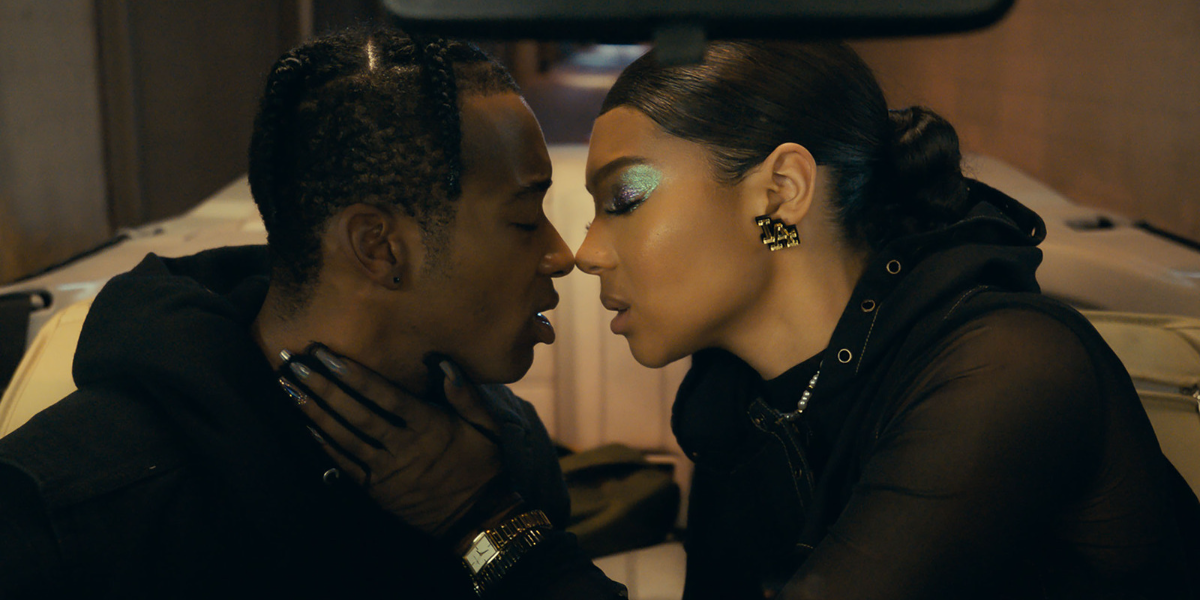
This movie relied heavily on aesthetics and then way too much on a twist. It’s not the only one that did it this year at Sundance either. Brandon (the stupid talented Algee Smith) is the oldest of three siblings and it’s all starting to weigh a bit too heavily on him. One night, he’s out for a snack and gets robbed by Cassidy (Sierra Capri), who turns out to be the entirely too manic pixie girl of his dreams. It’s too easy to do a very light comparison to say Natural Born Killers or Bonnie and Clyde, but so much of it was far too predictable.
You Hurt My Feelings (dir. Nicole Holofcener)

Julia Louis-Dreyfus is a white woman I care a lot about and she was the perfect fit for this film. I mean, it was literally written for her so that should be taken into consideration. A sweet little romcom about a writer who gets sad when she finds out her husband hasn’t enjoyed her writing in years. Little to no dykin’ present (I wasn’t expecting any ‘tho) and a fun little story about what it’s like to be in love with a writer. If you are, you may be entitled to compensation.
The Stroll (dirs. Kristen Parker Lovell & Zackary Drucker)
Being in charge of our own story is important. I didn’t need the reminder, but this film made me double down on the feeling. A documentary on The Meatpacking District in NYC told through the stories of the trans women of color who were a vital part of its history. I was actually at a panel with Kristen (Zachary was there too!) and she said that in so many documentaries about Black trans women, they always leave out the joy. So she did it herself, she made the documentary she wanted to see and showed us history, personal stories, reality, and so much fucking joy. Her subjects also expressed that in most docs they leave out the good parts, the happiness, and the positivity. So it was beautiful to watch them tell stories in a space where they felt like the full picture was going to be shown this time. This one was dope, and I had the added pleasure of watching while having in my heart exactly what the director wanted to exude and I can absolutely say that she nailed it. A beautiful portrait of Black and brown trans sisterhood and history.
Theater Camp (dirs. Molly Gordon & Nick Lieberman)
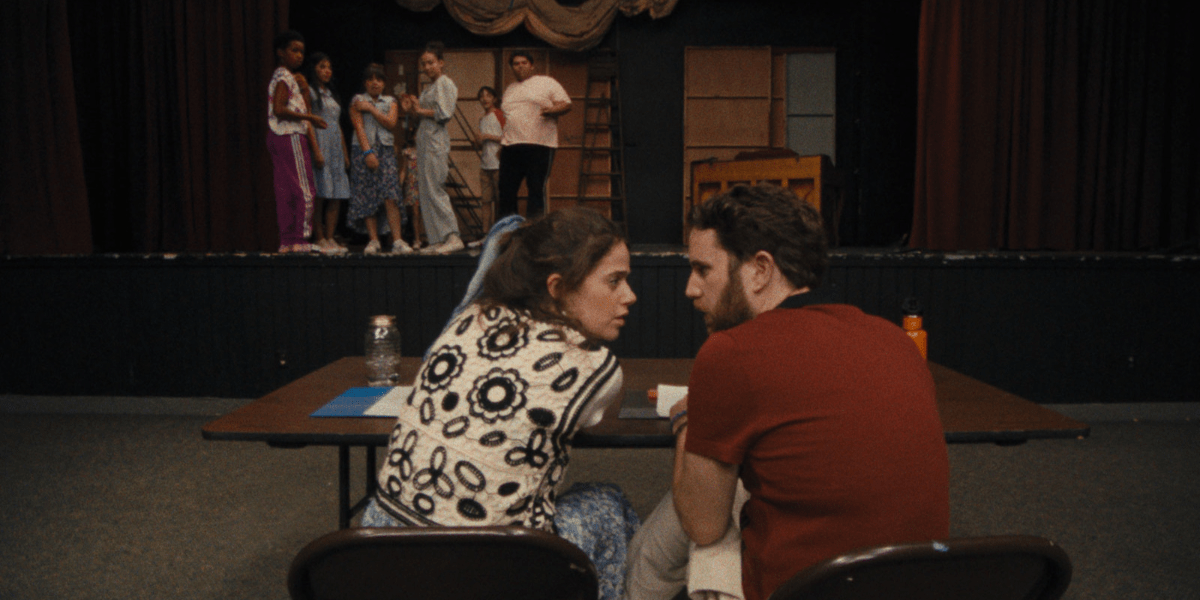
Every generation deserves its own Best In Show or Waiting for Guffman mockumentary so that years later, they can make a reference at a party as a mating call to find their people. This movie was a delight Ben Platt, Molly Gordon, and Noah Galvin wore multiple hats of writing, starring, or directing a movie about a theatre camp that is on its last leg. The improv was hilarious, the script was already great, and then you add in Amy Sedaris, Ayo Edebiri, and Patti Harrison and you’ve got gold. I watched this in a theatre full of folks who were obviously former theatre kids and it actually added to the experience instead of making me terrified.
Scrapper (dir. Charlotte Regan)
This was good, like really really good. Was really excited to see this one too and it did not let me down. Georgie (Lola Campbell), a 12-year-old girl loses her mother and has been living on her own ever since. No one knows but her best friend Ali (Alin Uzun) and he’s been helping her keep her secrets. She’s been doing just fine taking care of herself, she keeps the flat clean, pays the bills, and even has her grieving down to a schedule but then she gets a surprise visitor. Jason (Harris Dickinson) hops the fence and says that he’s her dad. She’s never met him and so, of course, she doesn’t want him or his help. This story could have gone really sad but it didn’t. It made space for Georgie to keep her strength and resilience (a trait that no child should have to have) while allowing her to find softness in the relationship with her father as he tries to make amends. A sweet story with just the right amount of drama, and a great debut performance from a new actress!
Full Reviews on Autostraddle
Bad Behaviour (dir. Alice Englert)
Eileen (dir. William Oldroyd)
Rye Lane (dir. Raine Allen-Miller)
Shortcomings (dir. Randall Park)
The Persian Version (dir. Maryam Keshavarz)








Comments
I am so glad you both covered Sundance for AS!
And I’ve dramatically added to my mental list of “movies I’d like to watch but probably won’t”